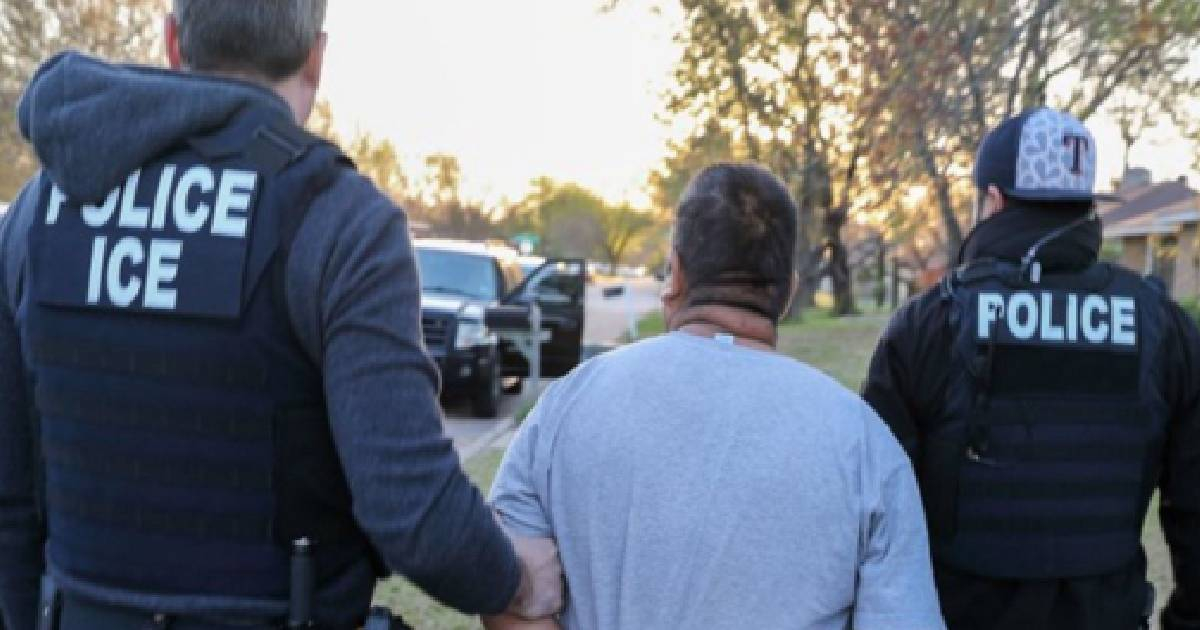Recent cases involving a woman and a young Cuban with I-220B (Order of Supervision and Deportation) who were detained while attending their immigration appointments and placed under the custody of the Immigration and Customs Enforcement (ICE) in Miramar, Broward County, for possible deportation to Cuba, have raised alarms among other Cubans in similar situations. Following these revelations, new stories have been reported by Telemundo 51, which has been closely following the case.
One such story is that of Llamiris Gámez, who was detained by immigration authorities while heading to work, as recounted by her daughter to the television network. On June 17, ICE agents arrived at her home to proceed with her detention. "She has a Master’s Degree, Cambridge certifications, speaks fluent English, and is a professional," her daughter noted, emphasizing that she is the type of professional the regime needs.
Another case that has surfaced is that of Susete, a Cuban who was a resident in the United States but spent more than six months abroad. "She exceeded the allowed time to re-enter the country. She was detained at the airport, stripped of her residency, and then transferred to a detention center," her mother told Telemundo.
Recently, the case of Lisván Isidrón Cabrera, a 26-year-old who entered the United States in March 2021 through the borders, was highlighted. Despite passing the credible fear interview, he lost his political asylum case. When attending his final immigration appointment, he was detained by ICE agents. "He has no one, just me and his brother. We have no one in Cuba. I don't know what would happen if they send him back," said his mother Mirielzi Cabrera.
Days later, Yoselianys Rodríguez was placed under the custody of ICE in Miramar. Married to a doctor who abandoned a mission in Venezuela and is now a U.S. citizen, Yoselianys faces the threat of deportation back to the island. "For a Cuban to be deported, they must be accepted by Cuba," said immigration attorney Antonio Ramos, who expressed concern about this new trend in ICE’s practices. This sentiment was echoed by Rosaly Chaviano, the attorney handling Lisván’s case.
“We know of many people who have been in the United States for many years with serious crimes, and yet Cuba does not want them," Chaviano noted. She also pointed out a pattern in these deportations: the Caribbean island accepts young people who have recently arrived in the United States. "We haven't been officially told that this is a pattern, just based on what we have seen—the individuals deported recently, the years they entered, and their ages—this is our understanding," she explained.
In a desperate attempt to avoid being sent back to Cuba, where they end up harassed by regime police and without job opportunities, Cuban migrants and their families have protested to demand an end to deportations and call for regularization for those who obtained an I-220A document upon entering the United States. Last month, the U.S. government carried out its fifteenth deportation flight to Cuba, returning 56 Cuban immigrants. "There have been 48 return operations, with 744 people from different countries in the region, both by air and sea," added the Ministry of the Interior (MININT) on X.
FAQs on ICE Detentions and Deportations of Cubans with I-220B
As the situation with Cubans detained by ICE under I-220B orders continues to evolve, many questions arise regarding the process and implications. Below are some frequently asked questions and their answers.
What is an I-220B order?
An I-220B order, also known as an Order of Supervision and Deportation, is issued to individuals who are under supervision while awaiting deportation from the United States.
Why are some Cubans being detained by ICE?
Cubans with I-220B orders are being detained by ICE for various reasons, including overstaying their permitted time outside the U.S. or attending immigration appointments where they are found to be deportable.
What happens to detained Cubans who are deported?
Deported Cubans often face harassment by regime police and lack of job opportunities. Their return to Cuba can be challenging and uncertain.
Is there a pattern in the deportation of Cubans?
Some attorneys have observed a pattern where Cuba accepts younger Cubans who have recently arrived in the U.S., though this has not been officially confirmed.
